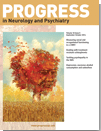Tackling psychopathy: A necessary competency in leadership development? (2014)

“most adults will have worked with or been supervised by a psychopathic individual…. leaders need to tackle psychopathic behaviour at work if they truly wish to improve quality and safety.
Prasanna de Silva BMedBiol, MRCPsych
Progress in Neurology and Psychiatry, Volume 18, Issue 5, pages 4–6, September/October 2014
The Francis Report into events at the UK’s Mid Staffordshire National Health Service Foundation Trust in 2013 described a culture of endemic bullying, where whistle-blowers were persecuted by management, whose focus was on achieving Foundation Trust status instead of patient safety and quality of care.
Francis also suggested that this culture probably existed across the NHS.
Workplace bullying is with psychopathic behaviour of a relatively small number of senior staff. Costs include safety lapses and lost productivity ill health and severance payments, litigation following accidents, and damages awarded by industrial tribunals.
Most surveys have suggested that the overall rate of psychopathy is less than 1% of the population.
However, in organisations it is recognised that this is an underestimate with rates up to 1 in 25 among managers and senior employees. Therefore, most adults would have worked with – or been supervised by – a psychopathic individual.
Challenging psychopathic behaviour can be a perilous activity, as there is a high risk of retaliation either directly by the person being challenged, or indirectly by the organisation.
Despite these risks, leaders need to tackle psychopathic behaviour in the workplace if they truly wish to improve quality and safety. Use of a leadership mentor – ideally in a position of influence – is essential to maintain resilience, and learn the art of managing psychopathic individuals in order to change organisational culture for the better. The use of pre-employment screening needs to be considered.
Access the article here: Tackling Psychopathy






Leave a comment
Back to the top